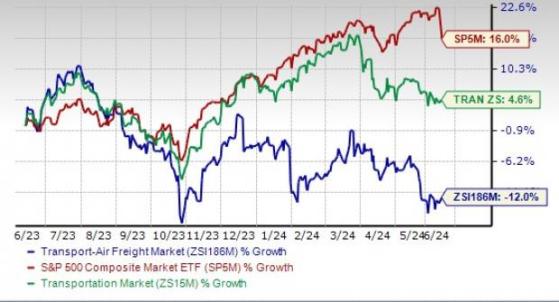Fleet owner convicted of lying to FMCSA
Trucking News and Briefs for Friday, 26th June 2024:
DOT believes that marijuana will continue to be a no-no among truckers
During a House Committee on Transportation & Infrastructure Hearing on Thursday, Transportation Secretary Pete Buttigieg stated that the Department of Justice proposal to change marijuana from a Schedule III to Schedule I drug does not impact his agency’s rules for drug screening.
Buttigieg stated that “any impaired driving, be it alcohol or marijuana, or any other source — is, ofcourse, a major concern for safety.” “Our understanding is that the rescheduling marijuana from Schedule I into a Schedule III would not change DOT’s marijuana test requirements for the regulated community.”
In May , the Drug Enforcement Administration (DEA) and DOJ published an notice of proposed rulemaking for reclassifying marijuana as a Schedule III substance. Schedule I drugs are substances or chemicals that have no accepted medical use but a high abuse potential. Schedule III drugs have a low to moderate potential for physical or psychological dependence.
As a Schedule I drug today, marijuana is classified with heroin, lysergic Acid Diethylamide (LSD), and ecstasy. Schedule III would include medications such as low doses testosterone and codeine.
[ Related to Biden officially commits marijuana regs overhaul: what CDL drivers need know]
Last week, the American Trucking Associations sent Buttigieg an email expressing their concern about the DOJ proposal and asking Buttigieg whether U.S. The DOT will continue to have the authority and resources necessary to test for marijuana use among commercial motor vehicle drivers, and other safety-sensitive workers in transportation.
Buttigieg pointed out that marijuana is not classified or scheduled for private individuals who perform safety-sensitive functions and are subject to drug tests. Instead, marijuana is identified using its name. “We do not believe it would have any direct impact on this authority if the classification of marijuana changed,” he said.
Buttigieg said that his department is evaluating any indirect effects marijuana rescheduling could have on drug tests. However, anyone currently subject to DOT marijuana testing would, in his opinion, remain subject to drug screenings if the drug were rescheduled.
Marijuana and Alcohol remain the most commonly detected drugs in impaired-driving crashes that result in serious or fatal injuries. Between 2000 and 2018 the number of fatal crashes involving marijuana has more than doubled.
Marijuana has been legalized for recreational use in nearly half of the United States (24 states), but it is still illegal for commercial drivers, no matter where they live, what state they drive through, or even if they are driving in. –Jason Cannon
[ Related: What reclassifying marijuana could mean for truckers and small fleet employers]
Former trucking owner convicted of lying to FMCSA
A federal jury recently convicted a trucking company owner from Rochester, New York for making a false statement to Federal Motor Carrier Safety Administration as well as conspiring to do so in relation to an chameleon carrier scheme. The maximum penalty for the charges is five years in prison, plus a fine of $250,000.
The charges for false statements on the OP-1 authority application form are not the same as perjury charges. Perjury is a punishment for deliberate misstatements.
According to Alex Lockie of Overdrive, FMCSA’s legal team indicated that they don’t believe that perjury would apply specifically to false information on the form. FMCSA told Lockie that the cases FMCSA has referred to DOT OIG are usually considered under a federal law that prohibits false statements’, which is broader, and would catch things such as false information on a document.
According to a release from the IRS Tony Kirik a.k.a. Anatoliy KIrik operated a trucking company worth millions of dollars called Dallas Logistics. Kirik submitted false documents to FMCSA when he applied for interstate operating authority. Kirik also provided false information and statements during the FMSCA’s compliance reviews and audits of his trucking business.
Kirik created new companies under the names of various family members and an employee to fool FMSCA about the safety of the trucking business. In reality, the new companies were just an extension of the previous company.
[ Relatedahref=”https://www.overdriveonline.com/regulations/article/15677613/are double-brokers-committing perjury-with” target =””>Are entities that double-broker committing perjury?” FMCSA weighs-in]
In the original complaint filed by the U.S. Government against Kirik in the U.S. District Court of Western New York, it was noted that Dallas Logistics purportedly operated out of Dallas Texas and was controlled by a person identified as “J.Z.”, and was unaffiliated with motor carriers. During a review of compliance, it was discovered that Dallas Logistics was not located in Dallas, Texas but rather was located and operated out of a location in Rochester New York.
Further investigation revealed that Dallas Logistics is an affiliate of Orange Transportation Services. Another carrier owned by Kirik, Orange Transportation Services had a poor safety rating.
The complaint stated that “had the affiliation between Orange Transportation Services, and Dallas Logistics, been disclosed, Dallas Logistics would have had a negative impact on its rating.” “Specifically, Dallas Logistics would receive a safety rating of Conditional at best.”
IRS press release: At trial, it was proven that Kirik’s action jeopardized safety on the nation’s highways by allowing unsafe tractor-trailers to travel.
The verdict is a result of an investigation conducted by IRS Criminal Investigations (IRS CI), directed by Thomas Fattorusso Special Agent in Charge, New York Field Office, and Special Agents of Department of Transportation Office of Inspector General under the supervision of Special Agent in Charge Christopher Scharf Northeast Region.
The sentencing will take place on October 28, 2024 before U.S. district judge Charles J. Siragusa who presided over trial.
[ Related to: New York trucking company owner charged with chameleon carrier scheme]
I-17 closes Monday night
Interstate 17 will be closed in both direction at J.W. Powell Boulevard (Exit 3337) south of Flagstaff in Arizona will be closed from 7 p.m. on Monday, July 1 to 5 a.m. on Tuesday, July 2 for bridge construction.
During the closure, a 10-foot vehicle width restriction is also in place.
The Arizona DOT has announced that traffic will be detoured along the off-ramps and on-ramps of the J.W. Powell interchange will be closed overnight. Crews are constructing a new bridge for J.W. Powell Boulevard crosses the interstate.
ADOT said that drivers should allow extra time for travel and be prepared to merge safely as they approach the project’s construction zones near Pulliam airport and Fort Tuthill Park.
ADOT’s $8.2million project to add the J.W. The Powell Boulevard bridge will be completed in the fall of 2024. The existing bridge will be demolished after the traffic shift to the new structure is completed later this year.
Iowa 80 celebrates 60th anniversary with custom-made cake at Jamboree
The Iowa 80 Truckstop will host a 60th Anniversary Celebration on Friday, July 12 as part of the Walcott Truckers Jamboree.
Charm City Cakes in Baltimore, Maryland, will create a cake replica of the Super Truck Showroom at the truck stop to mark the occasion. It will be a truly unique cake. “We’re excited to share our 60th anniversary with everyone,” said Iowa80 VP of Marketing Heather DeBaillie. She said that the cake would feature the yellow bobtail “Compatch Cadillac” which is displayed in the Super Truck Showroom along with an Iowa landscape, and the iconic Iowa 80 logo.
The cake will be served in the Super Truck Showroom at 2:30 pm on Friday, July 12. The public is invited to come and see the cake, as well as have a piece.
The Iowa 80 Truckstop opened its doors for the first time to the public on Friday, June 4, 1964. The facility included a small store, a restaurant, and two diesel pump. Iowa 80 is now 85 acres of developed land and offers over 900 truck parking spots, 10 restaurants, and other driver amenities.
The 45th annual Walcott Truckers Jamboree is scheduled to take place July 11-13, at the Iowa 80 Truckstop located in Walcott. Parking and admission are free. Shuttles will run from the parking lot to the event site. You can find the complete schedule of events here.









